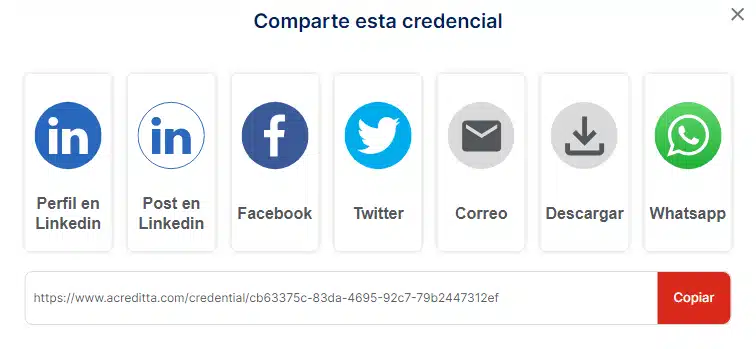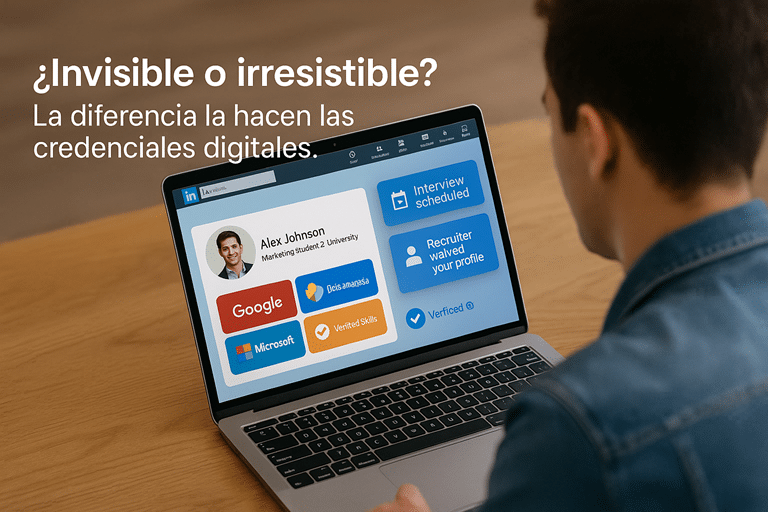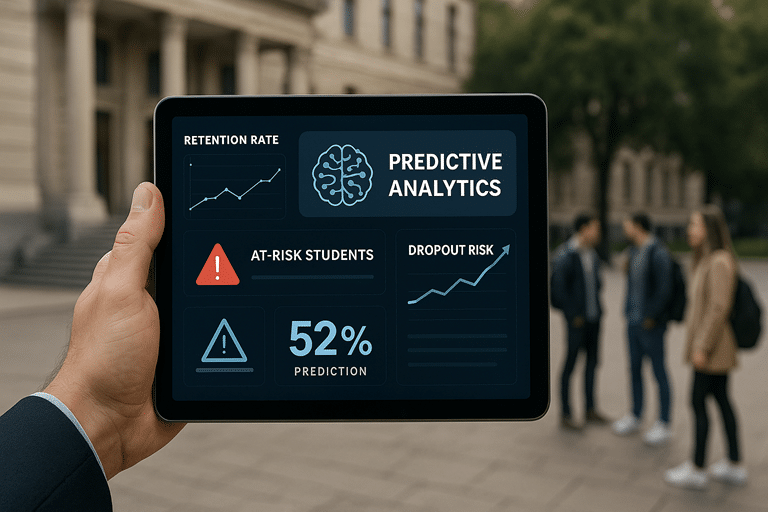Lifelong learning has become a necessity in a constantly evolving world of work and academia. Micro-credentials Micro-credentials are emerging as a powerful tool to help students and professionals stay up-to-date, acquire new skills, and improve their employability. In this article, we will explore the role of Micro-credentials in lifelong learning, how they are redefining the educational landscape, and how institutions can use them to increase the employability of their students.
What are Micro-credentials?
The Micro-credentials are certifications that validate specific skills or knowledge acquired in particular areas. Unlike traditional degrees, these are shorter, more flexible and focused on practical skills in demand in the labor market.
They are typically issued digitally and can be easily shared on platforms like LinkedIn or on a resume, allowing employers to quickly validate a candidate’s qualifications.

The Power of Micro-Credentials
The impact of micro-credentials is not limited to education, but also plays a crucial role in employability. For employers, micro-credentials are an efficient way to quickly identify the competencies of applicants without having to review extensive academic records. For students and professionals, they offer the possibility of acquiring specific skills quickly, allowing for constant updating in a work environment that demands flexibility and adaptability.
Key benefits of Micro-credentials include:
- Quick access to specialized training.
- Validation of specific competencies.
- Flexibility to learn at your own pace.
- Recognition in local and international labor markets.
The role of micro-credentials in lifelong learning and employability
El lifelong learning, refers to the continuous acquisition of knowledge and skills throughout life. In this context, Micro-credentials have become an essential catalyst, as they allow people to quickly adapt to technological and economic changes.
In terms of employability, micro-credentials offer a more agile route to professional upgrading than traditional programs. With them, students and workers can add relevant skills to their skill set without having to commit to lengthy study programs, which is ideal in a world where knowledge quickly becomes outdated.

How can universities leverage micro-credentials to create more meaningful lifelong learning paths for students?
Educational institutions have the opportunity to integrate micro-credentials into their curricula, offering students not only traditional degrees, but also more specialized tools for their professional development.
Some strategies that colleges and universities can implement include:
- Partnerships with the industry: Working with companies to develop Micro-credentials aligned with labor market demands.
- Flexibility in educational programs: Offer Micro-credentials that complement formal studies, allowing students to develop technical and soft skills.
- Integration with digital platforms: Use Digital Credential platforms to issue, share and validate Micro-credentials, thus facilitating access and visibility of acquired skills.
In conclusion, the future of education and employability is deeply linked to the ability to adapt and learn continuously. Micro-credentials not only offer a path to lifelong learning, but they also improve employability by providing concrete and high-demand skills. For educational institutions, implementing Micro-credentials can be the key to providing more relevant and meaningful education in the 21st century.
If you are interested in learning more about how to implement Micro-credentials in your educational institution, write to us at info@acreditta.com.
Subscribe to blog here and receive all our content







